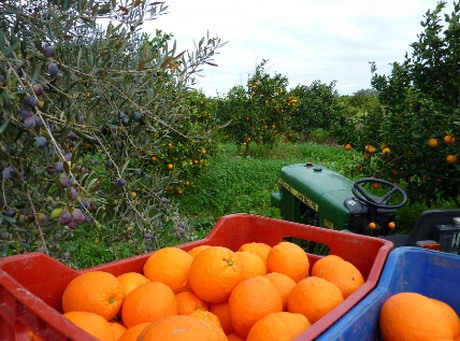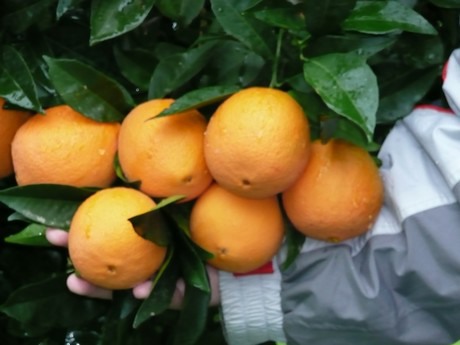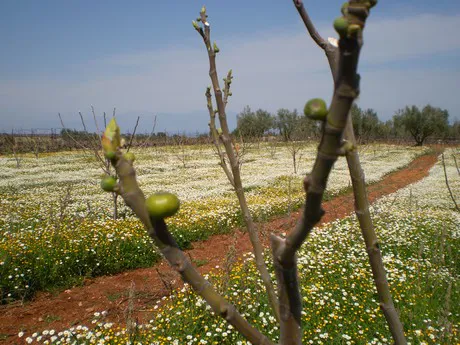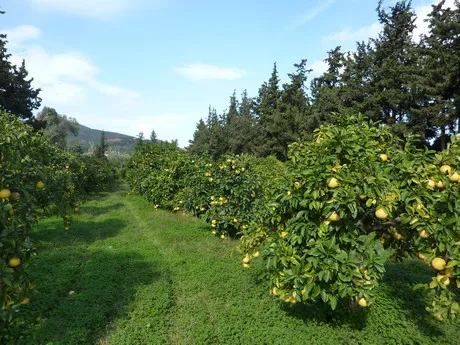
 Cold and extreme rainfall made it difficult for citrus growers in Greece this year. Over the entire product range, it was a rather difficult season with high failure rates, reports importer Sophoclis Michaelides of Bio-Ilios GmbH, based in Tübingen.
Cold and extreme rainfall made it difficult for citrus growers in Greece this year. Over the entire product range, it was a rather difficult season with high failure rates, reports importer Sophoclis Michaelides of Bio-Ilios GmbH, based in Tübingen.
"All in all, our contract manufacturers have lost about 500 tons so far."

On some days in January and February, it has rained as much in Greece as it normally does over the entire season. As a result, oranges have suffered high losses and major damage, confirms Michaelides. "Due to the weather and shelf life problems, we have to stop the Valencia oranges in May - a few weeks earlier than usual. Incidentally, we currently have only small discharges of Washington oranges, red and white grapefruit and relatively good quantities of Ortanique clementines. However, these are selling not as well in Western Europe."
Current price increase
In other parts of southern Europe, growers also had to reckon with extreme and changeable weather, but not to the extent as in Greece. Due to the current shortage of goods, Michaelides foresees significant price increases for about 2 weeks. "Ideally, we would have had this price all season, but the producers are particularly affected by the shortage of goods."
Competitiveness
In this context, the long-standing trader points to the unique, small-scale structure of Greek organic agriculture. "The small cultivation plots do not create a monoculture as elsewhere and ensure sustainability. In relation to the larger plots in Italian or Spanish organic farming, our production costs are significantly higher. This already has an effect on our competitiveness. In my opinion, the Greek diversity of nature should be rewarded by the trade."

White Marsh
Besides the small-scale structure of Greek agriculture, you can also find some unique varieties in the local plantations. "One example is White Marsh grapefruit. This white-pulp variety is not a mass-produced product like the red-meat Ruby Red, but it covers an interesting niche in organic food retailing."

"Organic food retail is our home"
Overall, the importer sees a steady increase in the consumption of organic fresh produce. New sales markets have not yet emerged for medium-sized companies such as Bio-Ilios GmbH, observes Michaelides. "The organic food trade is still our home. In the discounter sector, I see little potential for Greek products."
For more information:
Sophoclis Michaelides
Bio-Ilios GmbH
Lustnauer Kirchplatz 6
D-72074 Tübingen
Tel.: +49 7071 407851 0
Fax: +49 7071 407851 20
Email: info@bio-ilios.com
www.bio-ilios.com
